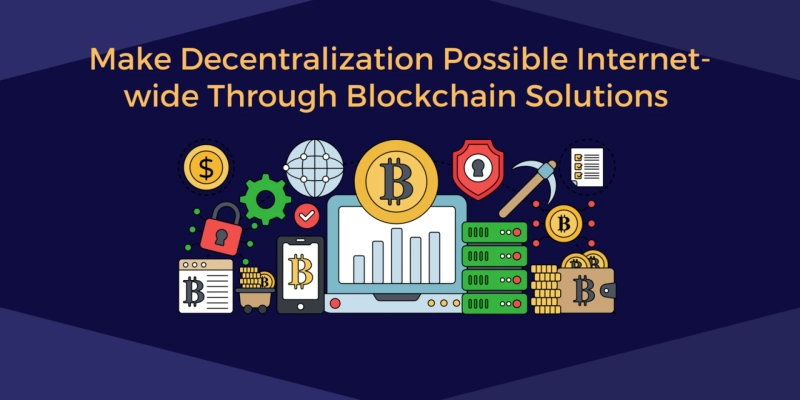The world of technology is changing rapidly, and blockchain solutions are already changing the game as we know it. Decentralization refers to distributing or dispersing functions and powers in the digital world. Simply put, Decentralization shifts power from a central authority to its constituents. It benefits everyone, including users and developers. Decentralized systems are more efficient than centralized ones because they need fewer resources to run and maintain, costing less in both money and time.
Additionally, many companies are also searching for ways to leverage Blockchain to become more decentralized. It can help them save money while delivering better products or services.
What is Blockchain?
Blockchain is a distributed, decentralized ledger responsible for recording transactions between two parties efficiently and in a verifiable and permanent manner.
Each block contains transaction-relevant data like the sender's and recipient's addresses and the amount being sent. These blocks are linked in an immutable chain using a cryptographic hash function, removing the chances of alteration or tampering once they have been added to the Blockchain.
Each block contains references to its previous block by including its cryptographic hash value within itself. Hence it is called a Blockchain.
Blockchains are secured by cryptography. It means that each new transaction must be signed using private keys. This ensures that no one else can forge your signature without having access to your private key file first, securing your transactions efficiently.
What are the features of Blockchain?
Blockchain is a decentralized and immutable ledger. The immutability helps build trust between the user and the system.
Additionally, it is a distributed ledger, meaning that it's replicated across many nodes (computers), ensuring that no one person or entity can control the data in it.
Finally, blockchains are shared databases. Everyone on the Internet can participate in adding information or reading them. Therefore, it removes the need for an intermediary like an escrow agent or bank manager since all transactions are performed by computers directly with one another over an encrypted network (e.g., Bitcoin).
What are the Centralized Internet and the issues it faces?
In the current Internet, everything is centralized. It means all your data and information are stored on servers owned by companies like Google and Facebook. Hence, these companies can control and access it at will.
The huge dependency on centralized servers makes them more susceptible to security breaches. In case of leaks, hackers will have access to all your personal information, including passwords which could result in identity theft or worse.
Furthermore, these companies decide what content gets published or removed from their platforms. And no one can challenge them.
How does Blockchain work to Empower Decentralization?
Blockchain is a decentralized database, a peer-to-peer network that provides a secure and transparent way to share data.
One thing to remember about Blockchain solutions is that it is not one single system or protocol. It is an approach to building software where the different components come together to form an overall system.
Each component follows its own rules for how it works with other elements. These rules are set out in computer code that lives on each participant's computer.
Why is Decentralization important?
Decentralization is essential because it has the potential to solve centralization, censorship, and privacy.
Centralized systems are vulnerable to attacks by malicious intruders who want to either disrupt or take control of them. Therefore, we need decentralized systems, not controlled by any single entity. The use of cryptography and consensus algorithms helps distribute the power, leading to better security.
Censorship can occur due to various reasons. Many countries already censor portions of their citizens' access, especially people who live under authoritarian regimes. The presence of a blockchain decentralized system can help reduce censorship giving individuals access to relevant information without the fear of retribution.
Blockchain Metaverse Solutions
Blockchain is not limited to the world of finance or how we experience the Internet today. The role of Blockchain in Web3 is also web documented. Now it is possible to get Blockchain Metaverse games. It results in a decentralized network of virtual reality (VR) experiences. Through this, the Blockchain developers can create a decentralized metaverse that is open and owned by the community. It will allow worldwide users to connect in VR as well as other applications built on top of the platform.
Blockchain technology will enable the creation of a new ecosystem where users can interact with each other without any middlemen taking commissions or controlling their data.
The Future of Blockchain Solutions
Blockchain solutions are a part of future of the Internet. The decentralized nature of Blockchain makes data manipulation highly unlikely. This enables users more control over their information while preventing censorship and surveillance.
Blockchain Metaverse Solutions providers can use blockchain technology to build decentralized applications (DApps) that run on top of existing blockchains like Ethereum or EOS. These DApps allow users to create virtual worlds where they can interact with each other in real-time through avatars controlled by artificial intelligence (AI).


